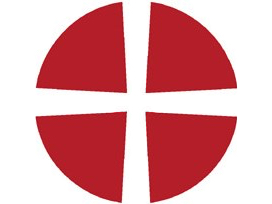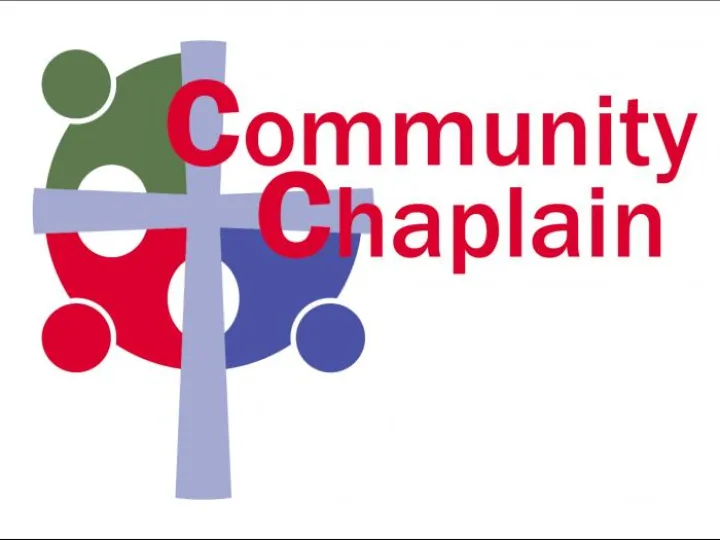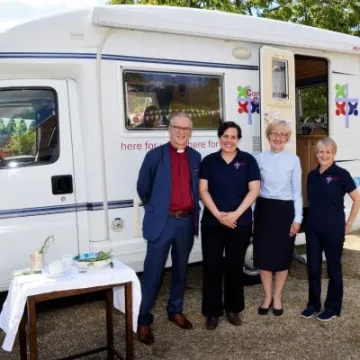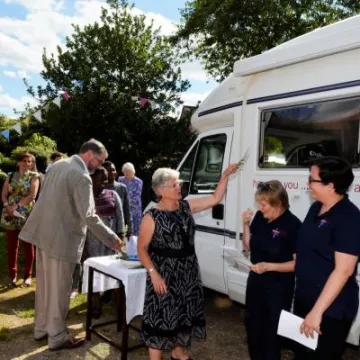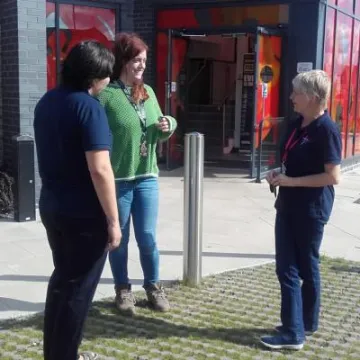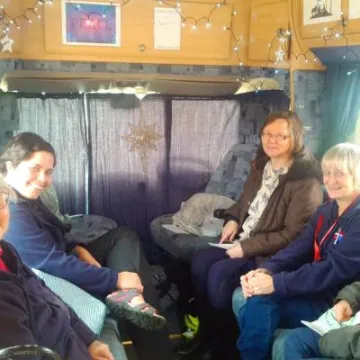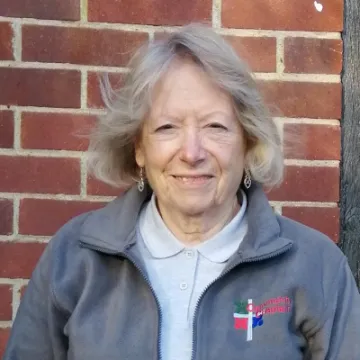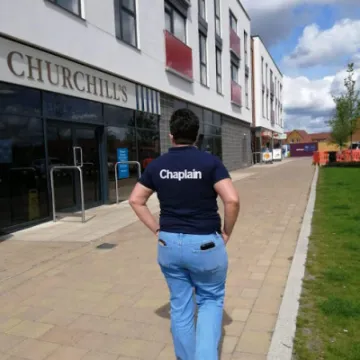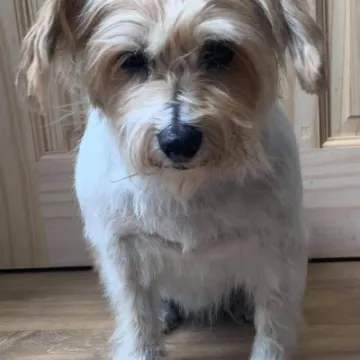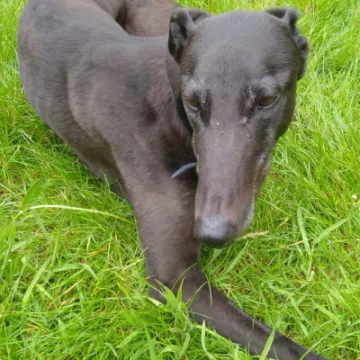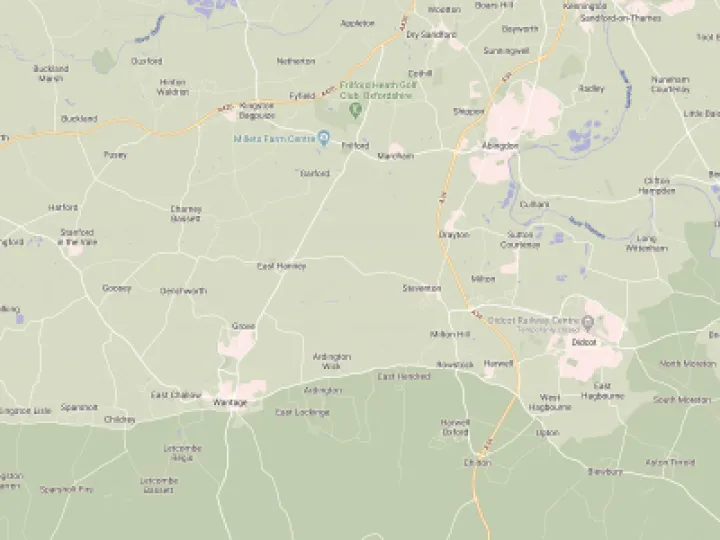Community Chaplains
A new type of chaplaincy
In 2016, our Circuit held a workshop led by Rev Robert Jones, to help us understand more about the role of a chaplain. Chaplaincy is already well established in the Forces, in education and young people's work, in hospitals, hospices and care homes, in agriculture, in prisons or in civic life. In more recent years there has been a growth in chaplaincy in shopping centres and businesses and in other work places.
So what is a chaplain?
A chaplain offers a visible Christian presence, interacting with people in the community or in the workplace and is someone who goes out to where people are, to listen, to be alongside, to be a guest not a host. Chaplaincy is not about "gathering in" – inviting people to "join us" – but more about "going out", reflecting the ministry of Jesus who went out to minister wherever people were and he sent out his disciples to go and do the same.
A chaplain is available to those with faith and those who don't profess faith. Their role is not to preach but to listen and respond and if invited to do so, discuss their Christian faith.
Our vision – of providing chaplains where people live rather than where they work – seems to be new. Working collaboratively with other churches, we seek to offer chaplaincy in new housing areas. Our focus has been on Great Western Park (GWP), the first and most advanced of the major developments planned in our Circuit.
FOLLOW the Chaplains' work on Facebook .
Update – September 2024
We have a new Community Chaplain!
On Sunday 8th September, our team once again officially grew as June Grunwald was commissioned as a Community Chaplain, based at Elmbrook Care Home in Wantage (but with a much wider unofficial role, like with most of our chaplains). The service was well attended, with lots of cake, and our chaplains (and canine chaplains) taking part.
Our Superintendent Minister, Keith , wrote the following for the service.
{StF 308 a new hymn to our Methodist musicality, begins with these words,
On the journey to Emmaus,
with our hearts cold as stone,
the one who would save us
had left us alone.
Then a stranger walks with us -
and, to our surprise,
he opens our stories
and he opens our eyes.
So writes the American hymn writer Marty Haugen
The account of the two on the road to Emmaus that Easter evening, is well known and much loved by many, and it has a certain resonance and importance for Chaplains and the understating of what is at the very heart and core of Chaplaincy
Jesus walks along a dusty road with a couple who had been caught up in the events in Jerusalem and had been close to Jesus' disciples.
Jesus as we have heard, joined them as they walked, veiling his identity as he asked the question, "what happened?"
They recounted the events surrounding Jesus' death and the testimony of the women but seemed confused. They were clearly troubled by all that had happened.
Jesus then helped them to make sense of the recent events in Jerusalem before revealing his true identity in the breaking of bread.
The road to Emmaus is a remarkable story, one of unfolding revelation through the conversations that take place along the road.
In the same way, chaplaincy is a conversational ministry one that often happens along the way.
For Chaplains listen to other people's stories, their anecdotes and recollections, their joys and regrets, their disappointments and highlights – the events of their very lives often found within the deeper questions asked by those they walk alongside.
Just as Jesus helped those two walking along the road to Emmaus make sense of what happened, chaplains can help others make sense of what is happening to them.
To give time and space to explore and unpack that which is on their hearts, that which is troubling or burdening them.
It doesn't mean of course that Chaplains know all the answers, far from it! Often, chaplaincy can be a ministry of not knowing the answers as they walk alongside in which saying "I don't know or understand why this is happening to you'" is followed by a commitment to continue to be alongside so that they are not alone.
Chaplaincy is about having conversations on the way, whether that journey is a physical or metaphorical one,
Just as Jesus throughout his earthly ministry, observed and responded to the deeper issues behind people's questions, so too, Chaplains listen to what is going on and respond.
The road to Emmaus is a great example of helping people to make sense of what has and what is happening.
Another much loved story by Chaplains that highlights what this important ministry is all about is the story of Jesus at the well with the Samaritan woman.
It reminds us that Jesus for the most part, conducted his ministry outside the synagogue, in the marketplaces and villages, along dusty streets and on hillsides. In this story, Jesus goes a step further and travels into what many would consider to be hostile territory.
As we know only so well from the experiences and examples of what Libby and Wendy do, Chaplaincy takes place outside the comfort zone of our Christian communities;
outside of our church buildings,
in places of commerce and industry,
on the streets, in the many places where people gather, and in the specific ministry June has developed here in wantage, in Elmbrook care home.
It is in the wider world, in the midst of our communities and outside of our churches, that we discover and find the spaces where God is already at work and where he calls us to be.....and these are often the places where life changing encounters can be found and experienced.
like Jesus, chaplains are sensitive to people and their needs. They notice people and give dignity and honour to each and every person they meet, no matter where they come from, who they are or what they have done.
In the story of this encounter, Jesus has an everyday conversation with the woman that begins with him asking her for a drink of water.
Jesus was then able to take that conversation to another level by listening to the deeper questions the woman asked.
Just as in the account on the road to Emmaus, Jesus discerned what was at the heart of the conversation and then spoke of a deeper truth.
This was a life-changing conversation.
As June will already know and have experienced along with Libby, Wendy and all Chaplains, these conversations can often have this life-giving quality, as we point to the source of abundant life.
Jesus, with great sensitivity and care took the time to speak with this unnamed woman and in doing so, she received dignity, enlightenment, encouragement and was sent on her way refreshed.
The story does not stop there of course, for she in turn, became a witness as she told everyone in the village what Jesus had done for her. Through this encounter many lives were changed as well as her own.
Whilst our focus this evening is quite rightly on commissioning June for the work she does and acknowledging all that she has already done in the name of the church, it is also a reminder that we are all called to be chaplains, inasmuch as wherever we find ourselves and in whatever we are doing, we are to be those who seek to reflect God's love and care for all people and to be a sign of his love in the world.
So with that in mind a few questions for us all to ponder this evening...
Where are the wells where people gather in our setting and context?
What are some of the needs that you see there?
How might we communicate resurrection wonder and joy to those you walk with?
What conversations on the way have we experienced? Can we recount those significant conversations when our 'heart burned within us'?
June, we take great delight in this new chapter in your life as we commission you to be a community chaplain. May God continue to bless you in all that you do. Amen}
Update – March 2023
Report written for the Wantage and Abingdon Circuit meeting
Chaplaincy within the circuit has continued to grow and develop. Wendy and Tilly had their long-awaited commissioning at a circuit service held at Wallingford Methodist Church in February. Photos and stories about which were shared through an interview with Hedley Feast on BBC Oxford's Faith Place that morning, and the national Anna Chaplaincy mailing.
Libby led a service at Wantage Methodist Church themed around stories of chaplaincy written by various people involved in the life of chaplaincy in the circuit. After the service, a couple of people remarked that they didn't realise that what they were doing was "chaplaincy". We're conscious that in every church across the circuit, people are involved in chaplaincy – what the chaplaincy team call "pastoral care on a regular basis with people outside of their family, their immediate neighbours and the membership of their church". We'd love to hear your stories of chaplaincy.
Wendy writes "I love that, when it works well, the pastoral visiting scheme which operates in our churches make us chaplains to our allocated group. Chaplaincy can also work in a much wider context and include chaplaincy to those who have little or no faith. It is a continuous learning experience of being a 'guest'. Thinking about it, how many of you chaplain those you meet on a daily basis – both friends and strangers?".
In other news, Anna Chaplaincy continues to grow across the circuit. Wendy regularly visits Williams Place independent living in Didcot, Bridge House care home in Abingdon, Benson care home, and St Lucian's managed living throughout the week. Where she can, she meets up with local residents at St Lucian's and takes some of them to church on Sunday mornings and lunches at Wallingford Methodist Church on Tuesdays. She's also on the rota for 'warm spaces' at Wallingford.
Wendy writes "visits to Williams Place are quite informal and we have lots of chats. When I have to occasionally miss a session, I know that they miss me. I know they respect me too. When talking about what sort of humour they liked recently, I suggested someone might like to tell a joke. They said not in front of me – their jokes were too beneath the belt!".
Wendy also writes "I was put in touch by the Anna Chaplaincy team with a Christian lady at Bridge House. We have lots of lovely chats and she is as much of a chaplain as I am. She knows everyone and makes the carers feel appreciated with her kind words as well as popping into see all the bed-bound folk every day to say 'hello', tell them she's their friend, and ask if there's anything she can do for them".
In terms of community chaplaincy, Libby is now working one day a week in Didcot and one day a week in Wantage. In Didcot, she usually helps at Didcot food bank and the community kitchen/soup kitchen. She chaplains the Scouts at Great Western Park (GWP) and helps with Boys Brigade and Girls Association at GWP. She visits the toddler/ community café held at the Northern Community Centre at GWP, and now also visits the community café at the Southern Community Centre at GWP.
In Wantage, she chaplains at the Wantage health walks and at Grove Brownies. She still adds to the Wantage history trail. She is hoping to start helping with afternoon patrols facilitated by Wantage and Grove Street Pastors afternoon walkabouts. She is also exploring chaplaincy with Y7-8 students at King Alfred's Academy.
Across both GWP and Wantage (and occasionally at Milton), Libby has a ministry of presence, engaging with folk she encounters whilst out and about with Theo. One afternoon recently, Theo had 9 chaplaincy encounters with folk who stopped to talk to him (and Libby) on the street. Libby also has ongoing opportunities to share anonymous stories of chaplaincy with interested individuals and church groups.
Both Wendy and Libby are grateful for all the opportunities to chaplain, for all the open doors, for your encouragement and for your prayers.
Update – December 2022
Audio history trail round Wantage (Libby writes)
Together with several community groups and local historians in Wantage, we've created an audio history trail round Wantage featuring some of its more established places and groups. It can be downloaded or listened to live, or read for those with access challenges here .
Update – July 2021
Audio trail round Great Western Park (Libby writes)
We've created an audio trail round the streets in Great Western Park North named after fallen troops of 11 EOD&S, sharing some of their stories. It can be downloaded or listened to live, or read for those with access challenges here .
Update – May 2021
Canine chaplains (Libby writes)
We're very slowly managing to grow our team! Since last year, we've had expressions of interest from three friends of the chaplaincy in finding out more about what's involved in being a volunteer chaplain, and both Wendy and I now have doggy friends who are often out visiting with us. Tilly is brilliant around people who feel a bit nervous of dogs, and Theo is particularly great with kids and there's never a dull moment when he's around! To find out more, see our canine chaplains page.
Update – January 2021
Expectant waiting (Libby writes)
It seems like a lot of what Wendy and I have been doing for the last year is expectant waiting, responding to opportunities as they arise, intentionally being around places where people might gather, and being prepared for the sudden changes that almost a year living under covid restrictions brings. It's a challenge at times to be always ready, and yet not lose heart when things take a little longer to open than we might have hoped. Yet it's been a year of opportunities for growth and personal reflection, and of getting to know individuals and groups at a deeper level without the busyness that life pre-covid entailed.
There's not been a lot to report or write about, but there's been a number of significant encounters and unexpected blessings. We look forward to being able to return to meeting in person with various community groups whenever the opportunity comes about again (maybe this year, maybe next), and we look forward to deepening connections in the meanwhile.
Update – July 2018
Sharing the stories of faith
Recently, Sarah and I completed our Chaplaincy Essentials training with Katherine – one of the things we ask all chaplains and chaplaincy volunteers to have done. We found it challenging, engaging and stimulating. It's always interesting when theoretical training is undertaken alongside practical experience.
One of the things that sticks in my mind from our final session is what chaplaincy is. We often get asked when we're out and about "who are you? What do you do? Why are you here?". Each a conversation in itself, and some of our favourite questions to ask people when we're plodding the pavements or going to a new group at GWP. So it was interesting to hear what the author of the training course said.
Chaplaincy is prophetic, pastoral and present. We permeate the culture at GWP – by being present in community groups, in public places and at special events, we ask people to think differently. We occasionally have a calming influence in challenging situations, inviting people to be gracious to each other, to feel empowered and to have a safe space in which they can emotionally flop.
By being present in schools and community groups, we invite young people to shine, being themselves and engaging with the world around, their peers and regular teachers or leaders.
Chaplains are prophetic (so the Chaplaincy Essentials course goes). We took that to mean two things – we have the freedom to try out new ways of doing things, to experiment with ways of expressing our faith, to look at ways that – with other Christians in the area – we can invite faith to be brought to the proverbial table. Stories of Jesus inspire. The Holy Spirit empowers.
Prophecy can also mean speaking the words of faith in courage where needed. This is such a hard one. Chaplains across the country are spiritually reactive, pastorally proactive. People know we're Christian, safe, trustworthy, dependable and can keep confidence, but quoting scripture to people or even offering to pray can have such a negative impact depending on where the other is coming from.
We need to know how to share God's peace and love with people who are hurting in the most appropriate way. Coming from a rich background of personal and corporate faith ourselves, we need to be able to quickly sense what level of challenge and "religious talk" is appropriate at any given moment.
And we are pastoral. A lot of our work is about encouraging people, sharing the hope, peace and love that comes from knowing Jesus. We notice. We care for all equally – no matter how important they feel personally. We take time for everyone who needs a 'spiritual hug'. We're there for all people, of all ages, professions, faiths, ethnicities, sub-cultures and life experiences.
You can imagine that with such a wide remit, we're becoming ever increasingly deeply embedded into the culture at GWP. We're invited to go to an ever growing range of places. We're finding doors, both physical and proverbial, opening to us all the time all over the place.
And we need you – your prayers, your support, your encouragement and your smiles. Anytime you're at GWP, look out for us, see what we do, come for a walk and talk. Or join us on Facebook, Instagram, twitter or email.
Update – April 2018
Making connections through moments of connection
"The culture in which we live is changing so rapidly that sometimes it can feel as though there is an increasing gap between existing forms of church and the majority of people in the UK today, particularly those under 40, who don't have any church connection. But the reality is that many of them are spiritually open and are willing to explore a Christianity that engages seriously with their context" – About Venture FX, The Methodist Church website.
It struck me today how a lot of pioneering (or at least from my perspective) is about making connections and widening our reach. In a myriad of contexts through a wide variety of ways, pioneering – and chaplaincy, is about making contacts, developing relationships, and helping to deepen our and others' awareness of who God has made us to be, where God has placed us, and who God is.
A lot of what Sarah and I do is about trying to prayerfully sense where God is calling us to go each day, who to speak to, and what to talk about. Daily, we trust God and step out in faith, not knowing what each day will bring. Some days, we get very little response from others at all. Our 'hello's may be greeted with a slight smile, a stone-walled expression or a cross to the other side of the street before we even get there. Other days, 'chance' encounters bring us into connection with others who are seeking an emotional, and oft-times, spiritual connection. Our 'hello's open a world of conversations, some quite lengthy, and some surprising deep.
Of course, nothing is 'chance' with God, who goes before us, walks with us, and follows behind us, creating moments of connection and openings in conversations. He knows the hearts of everybody at Great Western Park, and He guides us and directs us in where we should go. I'm often humbled by how many young people in particular are seeking after God and desiring to find moments of connection that are spiritually and emotionally significant.
In a day, I might see and speak with 100 young people who might not know very much about the church, Christianity or the Bible, but who regularly experience the sense of comfort, warmth and connection that I only get by going to church. Sometimes, it's scary stepping out in faith, not knowing how we will be received or what attitudes we may meet along the way, but I trust that God has already planned our day for us in intricate detail, and that every moment of encounter helps us to become more of who God has created and is shaping us to be.
There are no random moments in our work for everything is a moment of connection, whether they bring a smile to my face or a slightly tighter clutch of my coat. And every moment of connection is special to God who makes all things beautiful in its time and desires the best for us all.
Update – February 2018
Libby writes: At college (Church Mission Society), I was taught the importance of weaving to missional ministry – taking many different threads of a community and bringing them into dialogue with each other, and with God. I didn't really understand the concept or implications of that until now. Walking round Great Western PARK (GWP) this year, I've been struck by what an emerging community looks like where church and chaplaincy is in the middle of that growth.
Take today (the day of writing) as a typical example – I caught the train from Reading to Didcot as is my wont, got the bus to GWP, had a walkabout the estate, had lunch in one of the schools (as I do every Friday), and caught the bus back – a 4 hour shift. Today was no different from previously, and the encounters I had were of the ilk I have every week.
The bus drivers are getting to know me now and shared with me how their days were going. The students embraced me in a game and several conversations – some even made a beeline for me as soon as they saw me. Others stopped to wish me a good half term on their way home from school. A couple of residents stopped to have a chat, and I was greeted by a couple of local managers with a smile, brief catch up and queries about stuff happening in the wider community.
No different from most days, but what delighted me most is how integral we're becoming to the core of the community. We're being embraced as insiders, treated with respect and given a lot of trust. We are the glue that connects different parts of the community together, and a port of call for when things are not going so well.
A quote we explored at college is:
"To work magic is to weave the unseen forces into form; to soar beyond sight; to explore the uncharted dream realm of the hidden reality" by Starhawk. To me, this is an example of the possibility of growing interconnectivity of doing mission and ministry across an estate such as GWP, particularly when surrounded by people with the same vision and supported by our almighty God.
Update – November 2017
Sarah and Libby have now been based at Great Western Park for over 6 months and the time seems to have flown! They have made and are developing lots of connections in the area.
Whilst continuing to wander the parks and alleys of Great Western Park, they are both very much welcomed by a number of people who live and work there.
They regularly go into one of the local secondary schools to have lunch with students, give the occasional assembly at Stephen Freeman School, and support the work of the Rainbows, Brownies, Guides, and various Mums & Tots' groups.
They regularly meet with the Manager of The Station Pub; Salespeople at McCarthy & Stone – the local retirement home; the Manager of the corner shop; and Chair to the Residents' Association.
They bring concerns to Residents' Association meetings, share in the fellowship at the Thursday morning Community Cafe, and are valued members of the wider community.
In December, they will trialling a different use for the chaplaincy motorhome, Hope, by turning her into a mobile prayer space. They are delighted to have been invited by many of the groups with whom they have contacts to host some time out in the busyness of the run-up to Christmas. You're very welcome to go and check this out
for yourself. They will be open at the following times:
- Northern Community Centre – Thursday 30th November, 10-11am
- Outside Asda – Wednesday 13th December, 6-7pm
- Boundary Park – Tuesday 19th December, 7-8pm
- Outside Costa – Wednesday 27th December, 1-2pm
They rely on the prayers and encouragement of everyone in our churches as they seek to serve God in new and exciting ways. Please pray also for Rev. Katherine Pickeirng as she pioneers the extra role of line-managing the chaplains, and for the support group who help the team in so many ways.
A great start – September 2016
We recruited two part-time community chaplains, Sarah Ifill and Libby Hawkness-Smith , in April and they started work at Great Western Park in May. Here, they build relationships and complement other Christian initiatives, such as the flourishing community café and Rev Mark Bodeker's work establishing a new Anglican church, based at the UTC college.
As their mobile base and visible presence, they use a small motorhome, christened "Hope" and blessed at the Circuit service where the Chaplains were commissioned in July. "Hope" stands out with its new logo, designed by Tom Atkinson, a Didcot Methodist member.
Look out for "Hope", Libby, Wendy, Tilly and Theo on GWP now!
